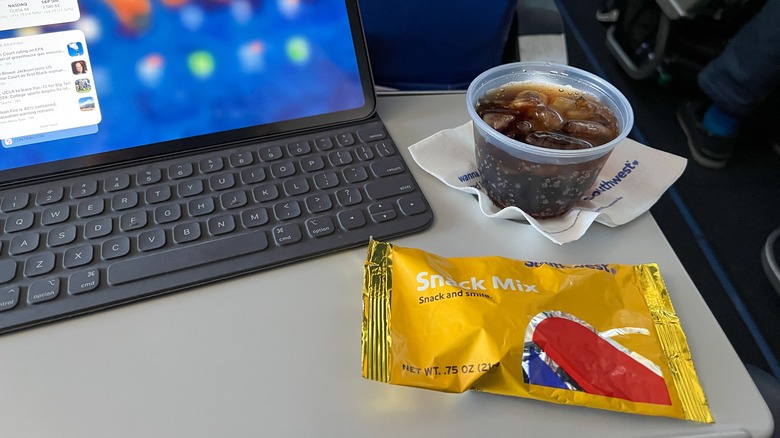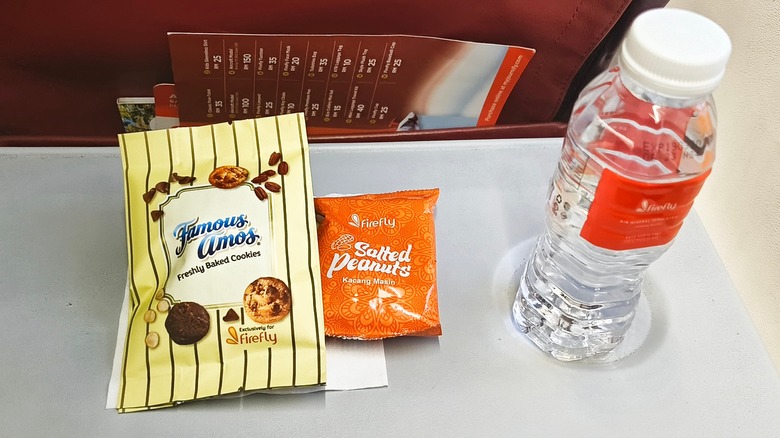There's A Reason Airlines Offer Specific Snacks On Each Flight
Pretzels or cookies? That's often your choice of a free airline snack when you're flying economy. Admittedly a few airlines are trying to upgrade their snacks to a fruit bar or Cheeze-its, but there's still a lot of similarity to what's being served. As with any business, cost is a major concern. A pioneer in cheap snacks is Southwest Airlines, which in 1971, only offered peanuts in exchange for cheap airfares. (Today, many airlines don't serve peanuts due to passenger allergies.) Later, in the 1980's, airlines were faring poorly, and deep cost-cutting measures were imposed to save money. One of the more infamous examples is American Airline's decision to eliminate one olive per passenger salad, which actually saved the company $40,000. Its success started a trend of downsizing staff, flights, and food. According to Condé Nast Traveler, airlines can save millions of dollars just by getting rid of certain snacks.
Snacks are also chosen based on branding and cultural identity. For example, before banning peanuts from flights in 2018, Southwest marketed itself with the tagline "Nuts for Southwest." Hawaiian Airlines serves macadamia nuts and shortbread cookies made in Honolulu. The snacks offered can also be influenced by the flight's destination. Emirates serves pizza on flights to the U.S. and scones on flights headed to England. But arguably the overriding factor in why airlines serve certain snacks is because of what happens to our bodies at 30,000 feet.
Food tastes different when you're flying
The humidity in an air cabin drops to a desert-like level of approximately 12 percent. This drastic change causes dehydration, which in turn affects nasal passages and diminishes our sense of smell. Smell accounts for 80 percent of what we perceive as taste, and consequently, certain tastes — salty and sweet – are weakened by 30 percent. To compensate, airlines over-salt and over-sugar all food that is served, so it might actually taste like how it's supposed to taste. Our fifth taste, umami, however is not affected by air flight, and since tomatoes are rich in umami, people consume a lot more tomato juice and Bloody Marys than they normally would. Wines are also dramatically affected by airflight; a lovely full-bodied wine on ground can turn thin and weak in the air.
Airlines continuously research and experiment with the meals served to evaluate their taste airborne, and snacks are also taste-tested. JetBlue has a team of flight attendants that sample potential new snacks while in flight to evaluate if they hold up taste-wise to the issues caused by high altitudes. Currently, several airlines — Delta, United, Southwest, and Jet Blue — have upped their snack profile with fruit bites, roasted almonds, seed and oat bars. If the trend continues a mini pretzel may never need to pass between your lips again.

